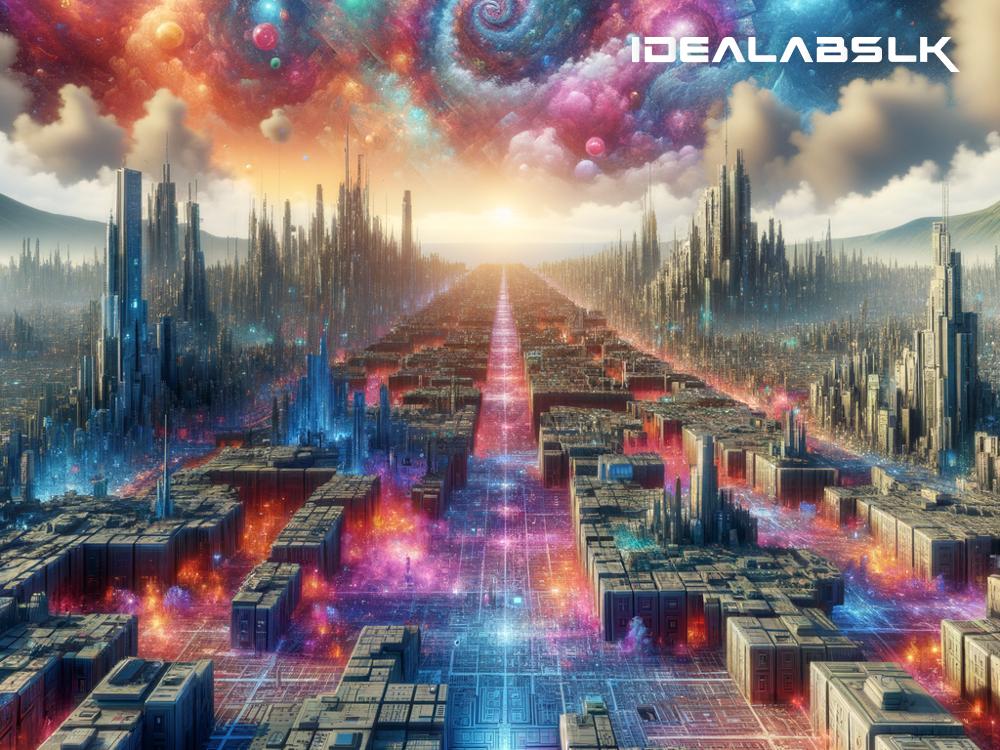AI-Generated Worlds: How Video Games Will Create Never-Before-Seen Landscapes in 2025
Imagine stepping into a video game where every mountain, river, and forest is unique and has never been seen before—not even by the game's creators. Welcome to the future of video gaming in 2025, where Artificial Intelligence (AI) is revolutionizing the way video game environments are created. This isn't just about more detailed or pretty landscapes; it's about entire worlds generated by AI, offering experiences that are as unpredictable and varied as the real world.
The Magic Behind AI-Generated Worlds
At its core, this technology involves AI algorithms that can create complex, vast environments in a fraction of the time it would take human designers. Picture AI as an artist with an infinite palette of digital brushes, textures, and colors at its disposal, capable of painting landscapes so intricate that they can rival nature's complexity and beauty.
The process starts with game developers feeding the AI system a set of rules and parameters. These can include the type of world they want (like sci-fi, fantasy, or post-apocalyptic), specific elements that must be included (such as deserts, oceans, or cities), and any physical laws that the world should obey. From there, the AI takes over, using these guidelines to generate terrain, ecosystems, and even weather patterns.
The Impact on Gamers and Developers
For gamers, this technology promises an end to the familiar feeling of déjà vu that comes from playing different games with similar environments. Instead, they'll embark on truly unique adventures every time they play. Imagine exploring a forest where no two trees are the same, diving into oceans with never-before-seen creatures, or navigating cities with layouts as unpredictable as those in the real world.
Developers, on the other hand, stand to benefit from the massive reduction in time and resources required to create game worlds. What once took months or even years to design could now be generated in days or hours, allowing for more focus on storytelling, gameplay mechanics, and polishing the final product. This also opens the door for smaller indie developers to create experiences that can compete with the visual quality and scale of games produced by larger studios.
The Path to 2025 and Beyond
So, what needs to happen between now and 2025 for AI-generated worlds to become a reality? Three key areas require advancement: the AI technology itself, computing power, and game development tools.
-
AI Technology Improvements: The algorithms behind this tech need to become more sophisticated to handle the creation of truly diverse and complex worlds. This means advancements in understanding and replicating natural landscapes and ecosystems in a digital format.
-
Computing Power: Generating and running these worlds will require significant amounts of processing power. Fortunately, with the continuous advancement of cloud computing and dedicated gaming hardware, this challenge is already being addressed.
-
Game Development Tools: Finally, there needs to be a bridge between the AI's capabilities and the game developers who use it. This means creating user-friendly interfaces and tools that allow creative professionals to guide and fine-tune the AI's output without needing to be AI experts themselves.
The Potential and the Pitfalls
While the possibilities of AI-generated worlds are vast, there are considerations and potential pitfalls that need addressing. One concern is the loss of the human touch in game design. The unique vision of game designers has traditionally guided the creation of memorable game worlds. There's a risk that relying too heavily on AI could lead to a loss of this personal touch, making games feel less like crafted experiences and more like procedurally generated content.
Additionally, there's the challenge of ensuring that AI-generated content aligns with players' expectations and sensibilities. As AI takes on more of the creative process, developers will need to find ways to maintain control over the content to ensure it doesn't generate anything offensive or inappropriate.
Looking Forward
As we look towards 2025, the prospect of exploring AI-generated worlds in video games is not just a possibility; it's an impending reality. This technology has the potential to revolutionize the gaming industry, offering experiences limited only by our imagination. As the lines between the digital and natural worlds blur, gamers are in for adventures that today are barely conceivable.
In the end, the true beauty of AI-generated worlds lies in their ability to surprise and awe us, bringing back the feeling of exploration and discovery to video gaming. As we stand on the brink of this new era, one thing is clear: the future of video games is about to become infinitely more interesting and unpredictable.

